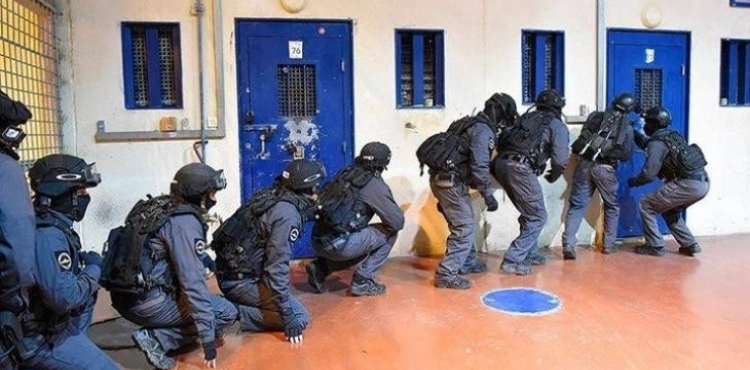The Palestinian Commission of Detainees and Ex-Detainees Affairs reported ongoing violations against Palestinian prisoners held in Israel's Ofer Prison, including repeated cell raids and deliberate medical neglect by the prison administration.
According to the commission, its lawyer recently visited several detainees at Ofer and confirmed that prisoners are suffering due to poor food quality and insufficient quantities—lacking even basic essentials like sugar and salt.
The lawyer stated that special repression units continue to storm prisoners' rooms. Recently, the "Metzada" unit confiscated prisoners' mattresses and imposed various punitive measures. Prisoners are also frequently denied their daily break time (known as fura), with the little time allowed—just half an hour—taking place as early as 6 a.m., without clear justification.
In addition, prisoners are suffering from a shortage of clothing, further exacerbating their difficult conditions.
The commission highlighted specific cases, including:
Qutaiba Samour, an administrative detainee from Tulkarm held in Section 19, Room 8, who has been suffering from persistent skin itching for about a month. Despite multiple requests for medical examinations, the prison administration has not responded.
Abdullah Mohammad Saleh Manasrah, 18, from Jenin, detained in Section 11, Room 15, who suffers from dental pain and allergies. He is in need of ointment and other treatments but has been denied medical care.
Sharaf Al-Din Adel Mohammad Abu Dayyeh, an administrative detainee from Halhoul held in Section 25, Room 14, has existing vision problems that require medical attention. However, Ofer Prison officials have refused to conduct the necessary examinations.
Mohammad Mahmoud Issa, from Bethlehem, currently in Section 16, Room 12, suffers from ear problems, foot fungus, and stomach issues. He stated that these health problems began after his arrest and persist due to lack of treatment, despite repeated requests for medical attention.
The Commission emphasized that these practices constitute clear violations of international humanitarian law, calling for urgent intervention to end the abuses and ensure prisoners' basic rights are upheld.
Would you like this version tailored further for media, a report, or social media?












